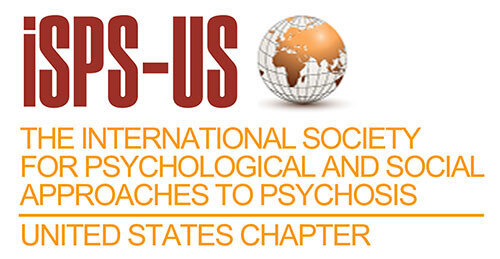
ISPS-US recently submitted a letter to Oregon’s Joint Ways and Means Committee urging legislators to reject HB 2467, a bill that would dangerously expand the use of involuntary psychiatric commitment.
The bill proposes allowing individuals to be court-ordered into psychiatric hospitalization based solely on the prediction that they may become dangerous in the next 30 days, even if they have not engaged in any harmful behavior. This standard not only lacks scientific grounding, but also undermines trust in mental health systems and risks violating basic human rights.
As a professional organization comprised of clinicians, researchers, peers, and family members committed to evidence-based and humanistic approaches to psychosis, we believe this bill represents a harmful step backward. Instead of expanding coercive systems, Oregon should invest in trauma-informed, community-based alternatives, as outlined in the World Health Organization’s 2025 Guidance on Mental Health Policy and Strategic Action Plans.
You can read our full letter to the Committee below:
Dear Members of the Joint Ways and Means Committee,
I am writing on behalf of the International Society for Psychological and Social Approaches to Psychosis - U.S. Chapter (ISPS-US), a professional organization that includes clinicians, researchers, peers, and family members all committed to advancing evidence-based treatment of psychosis. We strongly urge you to oppose HB 2467 that expands court-ordered psychiatric hospitalization by including the provision that individuals who have not done anything dangerous can be involuntarily committed if they are deemed "likely" to become dangerous in the next 30 days. The idea that it is possible to predict a person’s future behavior contradicts science and evidence. Such predictions are only possible in the form of a very broad statistics probability with a large margin of error, which do not provide any reliable information about concrete individual cases. [1]
Our core membership is comprised of mental health providers who know from experience that broad powers given to courts and police in the matter of mental health treatment make their clinical work more difficult. Court hearings that are adversarial by nature destroy trust, cause people in need of treatment to avoid mental health services, and are detrimental to building therapeutic relationships that are key for effective treatment. [2] Competent providers trained in person-centered, trauma-informed methods very rarely petition courts for involuntary commitment, and the existing legal criteria are more than sufficient for these rare cases. There is no need to expand them.
Rather than expanding involuntary commitment, we urge Oregon to prioritize funding for proven, community-based interventions outlined in the World Health Organization’s recently released Guidance on Mental Health Policy and Strategic Action Plans (2025). [3]
Thank you for your time and attention to this critical issue.
ISPS-US
1. Sanati A. Matthew Large. BJPsych Bulletin. 2021;45(3):190-192. https://www.cambridge.org/core/journals/bjpsych-bulletin/article/matthew-large/19220A651DD4BA3BE52D0E004E6FAEAC
2. Kornhaber R, Walsh K, Duff J, Walker K. Enhancing adult therapeutic interpersonal relationships in the acute health care setting: an integrative review. J Multidiscip Healthc. 2016 Oct 14;9:537-546. https://pmc.ncbi.nlm.nih.gov/articles/PMC5072574/#:~:text=Introduction,client%20relationships%2C%20and%20therapeutic%20alliances; Jones N, Gius BK, Shields M, Collings S, Rosen C, Munson M. Investigating the impact of involuntary psychiatric hospitalization on youth and young adult trust and help-seeking in pathways to care. Soc Psychiatry Psychiatr Epidemiol. 2021 Nov;56(11):2017-2027. doi: 10.1007/s00127-021-02048-2. https://pubmed.ncbi.nlm.nih.gov/33751175/
3. World Health Organization (2025) Guidance on mental health policy and strategic action plans: Module 3. Process for developing, implementing, and evaluating mental health policy and strategic action plans. https://www.who.int/publications/i/item/9789240106833

